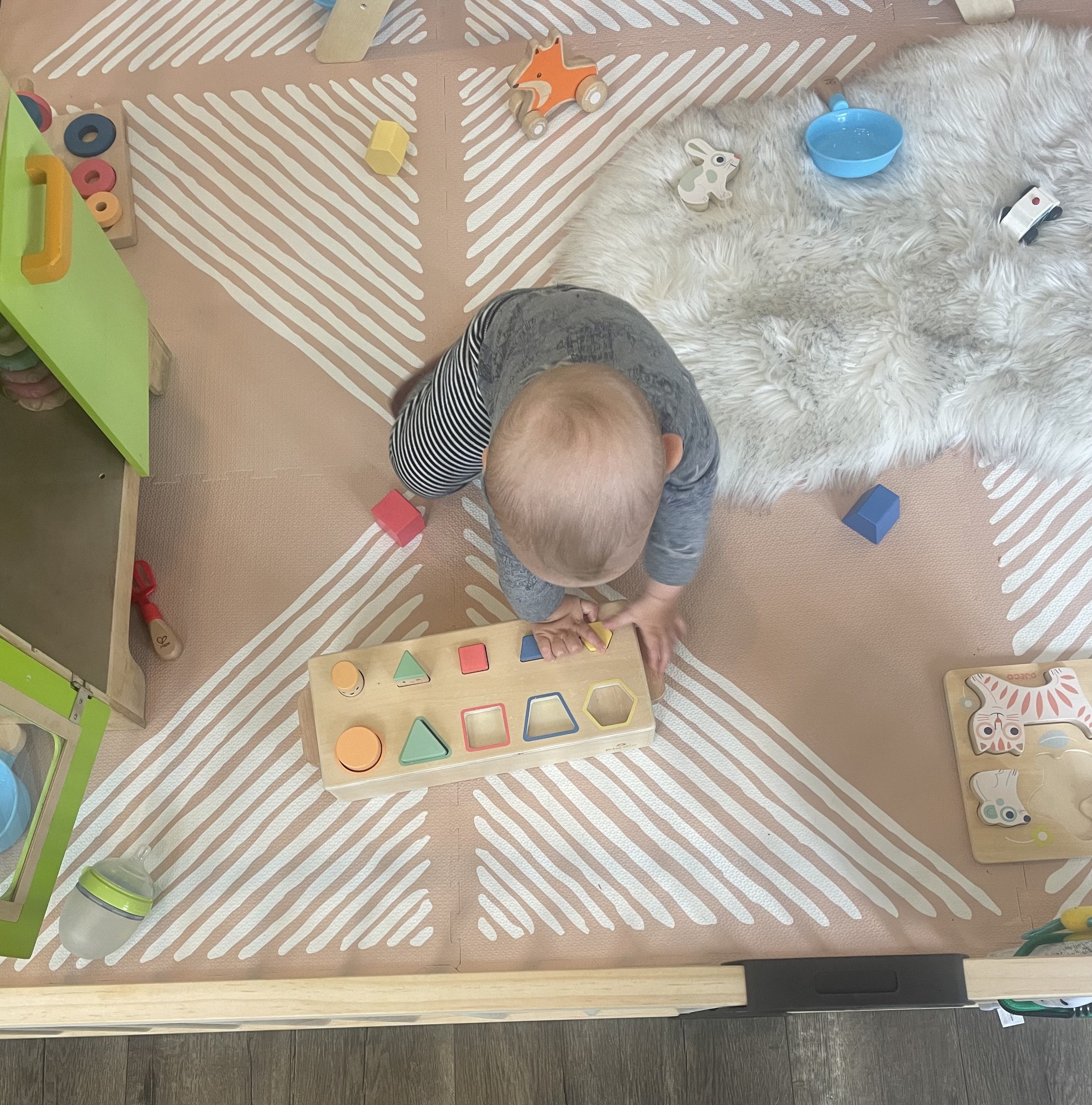Infant Parent Coaching Program
“Infants who actively participate in their daily care routines… are also active and full of initiative beyond the care situation.
They are capable of picking out from their surroundings, objects which interest them, independently getting to know these objects and occupying themselves with them.
Infants who are brought up this way do not demand the same amount of help from adults.”
Dr Emmi Pikler

The Infant Parent Coaching program guides and supports parents in developing highly focused and engaging care routines and the setting up of a free play space. The nature of the care routines provide a level of connection that succeeds in fulfilling a baby’s attachment needs. The child is then freed up to engage in sustained, independent play in a safe, gated play space, at the same time freeing up the parent from having to watch the child every second.
Attachment theory shows us that it is solely from the secure base of the parent that an infant is able to venture out and explore the world and their relationship to it. That is what we are fostering with the engaging focused care routines. This is what propels a child into an independent, self-regulating and robustly confident human being.
Routines are crucial for babies and young children. Because everything is new them, they thrive on sameness! Sameness helps babies to know what is happening, what is about to happen and how they can participate. It is empowering for a baby and builds their sense of autonomy and independence. This includes the sameness of all routines; nursing routines, diapering routines, play routines, dinner routines and sleep routines.
Daily care routines become an oasis from the typical grind. The care routines are highly engaging and enriching activities done together, building relationship, connection and cooperation. The infant becomes an active participant in their care, cooperating in the dressing and undressing, anticipating the steps, learning the routine, gaining confidence and a sense of autonomy.
Once the baby’s needs have been satisfied through mutually enjoyable care experiences, the baby is ready to engage in free, independent play, exploring and discovering their relationship to the world around them in their own strategically designed free play space. The free play space is created with all the key elements for optimal fine and gross motor development. It’s a large, safe, gated space with a few select toys and plenty of room to move freely and safely.
The play space is optimally set up where the baby will have maximum visual access to the parent. Being able to see the parent is what is referred to in attachment theory as “proximity seeking. It gives babies the secure base from which to explore their environment.
My intention throughout is to support parents in having their ideal relationship with their child, navigating through early brain development considerations, child attachment theory, routines, and their own intuition and intentions, investing in the best possible care for their baby.
Attachment Research Study Results
Developmental Psychologist Alan Sroufe states, “Nothing is more important than the attachment relationship.” He explains, “Attachment is a relationship in the service of a baby’s emotion, regulation and exploration. It is the deep, abiding confidence a baby has in the availability and responsiveness of the caregiver.”
Sroufe, together with colleagues at the Institute for Child Development at the University of Minnesota ran a series of landmark studies called the Minnesota Longitudinal Study of Risk and Adaptation (MLSRA). The study takes place over a 35 year period on the long-term impact of secure attachment, revealing that the quality of early attachment reverberated well into later childhood, adolescence, and adulthood, even when temperament and social class were accounted for.
The MLSRA studies showed that children with a secure attachment history were more likely to develop:
Higher self-esteem
Better coping under stress
Better emotional regulation
Closer friendships in middle childhood
Better coordination of friendships and social groups in adolescence
More trusting and positive romantic relationships in adulthood
Happier and better relationships with parents and siblings
More leadership qualities
A greater sense of self-agency
Greater social competence

